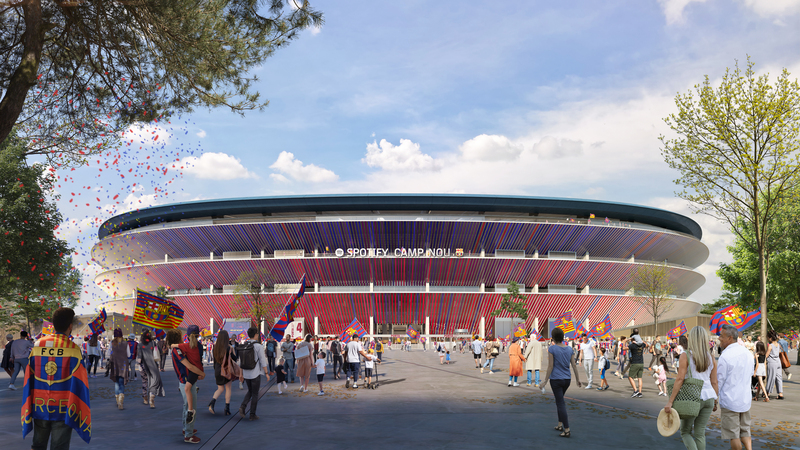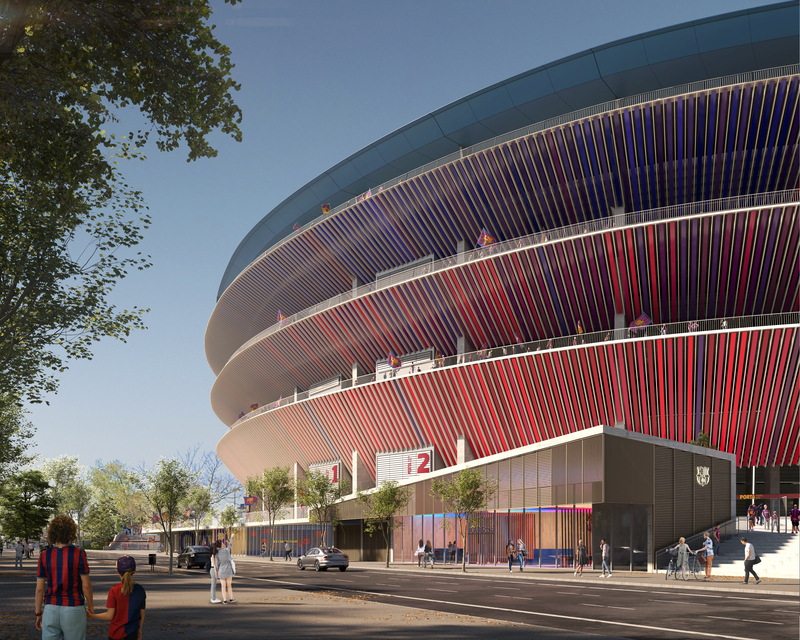
In its ongoing project to renovate FC Barcelona’s home stadium, Spotify Camp Nou, Turkish contractor Limak told GCR that it had now removed the old stadium’s third and top seating tier ahead of replacing it with a new, higher capacity one.
Limak won the design-build renovation contract in January this year, but didn’t start work until the 2022-23 season ended in June.
The idea is to expand seating capacity at the 66-year-old stadium from 98,000 to 105,000.
Limak said all seats on the lower two tiers have been removed ahead of reconfiguring the tiers to accommodate 65,000 seats.
While their stadium is being revamped, FC Barcelona is playing at Estadi Olímpic Lluís Companys, a venue originally built in 1927 and renovated to a design by Vittorio Gregotti before the city’s 1992 summer Olympics.

According to the schedule, Barcelona will resume playing at the new Camp Nou in November 2024, with 65,000 spectators able to sit in the first two tiers.
Work on the third tier is due to be completed in August 2025, with the completed stadium expected in August 2026.
When completed, the ground will have a gross floor area of 220,000-sq-m on a 300,000-sq-m site with an updated hospitality area.
At present, 450 workers are at the site each day, but Limak said this will increase to 2,000 at the peak of construction activity.
The stadium’s exterior will seem to change colour as viewers move around it.

The new stadium will have a 48,000-sq-m roof, containing 21,000-sq-m of solar panelling.
A museum has been completed, which contains 2,400-sq-m of exhibition space.
The site will contain improved accessibility, with 70 lifts and 104 escalators.
With the FC Barcelona team, its sponsors, and 105,000 fans anticipating matches, Limak said it had contingency plans in place to ensure the work runs on time and to budget.
The company said it offered a lower contract price than it normally would have because it hopes the project will lead to further work in Europe, although it still expected what it called a “reasonable margin”.










